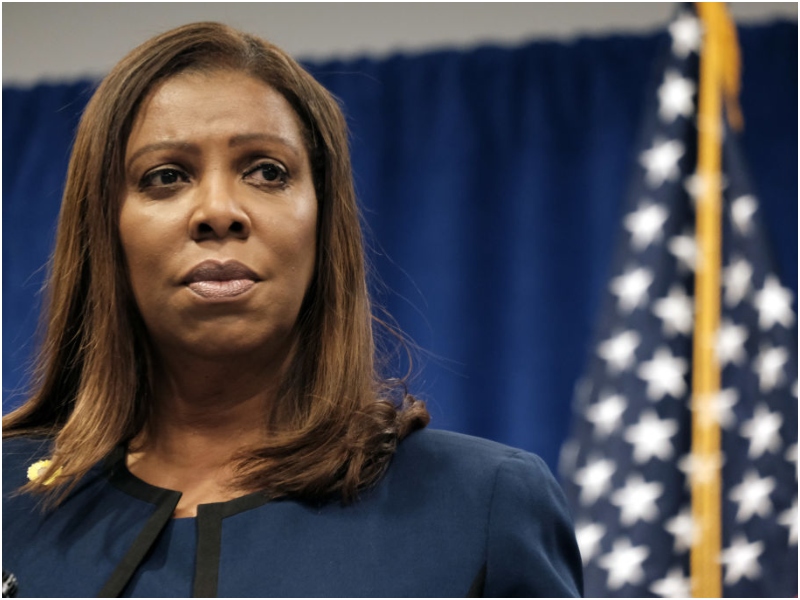New York Attorney General Letitia James’ significant win in the civil fraud case against former President Donald Trump could face a complete reversal, according to legal experts.
Former federal prosecutor Joyce Vance recently highlighted the vulnerability of the case during an episode of the CAFE Insider podcast, co-hosted with former U.S. Attorney Preet Bharara.
On Thursday, Trump’s legal team urged a New York appeals court to reverse or reduce the nearly $500 million penalty imposed in the case, which stems from a lawsuit filed by James.
The lawsuit alleges that Trump inflated the value of his assets to secure loans and insurance deals.
In February, Judge Arthur Engoron ruled that Trump had provided false financial statements for years, resulting in a $350 million penalty, which has since grown with interest to over $489 million.
However, during the appeals hearing, some of the judges expressed concern about the “immense” penalty, with one calling it “troubling.”
Trump’s attorney, John Sauer, described the penalty as “draconian,” arguing that there were no direct victims since the banks involved were satisfied with the transactions. He cautioned that upholding the ruling could deter others from doing business in real estate due to fear of similar scrutiny.
New York’s Deputy Solicitor General Judith Vale defended the penalty, arguing that the extent of the fraud justified the significant fine. “There was a lot of fraud and illegality here,” Vale stated during the hearing.
Vance, discussing the potential outcomes, explained that appellate courts are typically deferential to trial courts’ findings of fact but may take a fresh look at the legal interpretations.
“This case appears to hinge on legal theories and statutory interpretations, and the appellate courts may disagree with how the trial court applied the law,” Vance said. She added that based on the oral arguments, the verdict is now “in jeopardy.”
As the appeals process continues, the future of the case—and the significant financial penalty imposed on Trump—remains uncertain.

